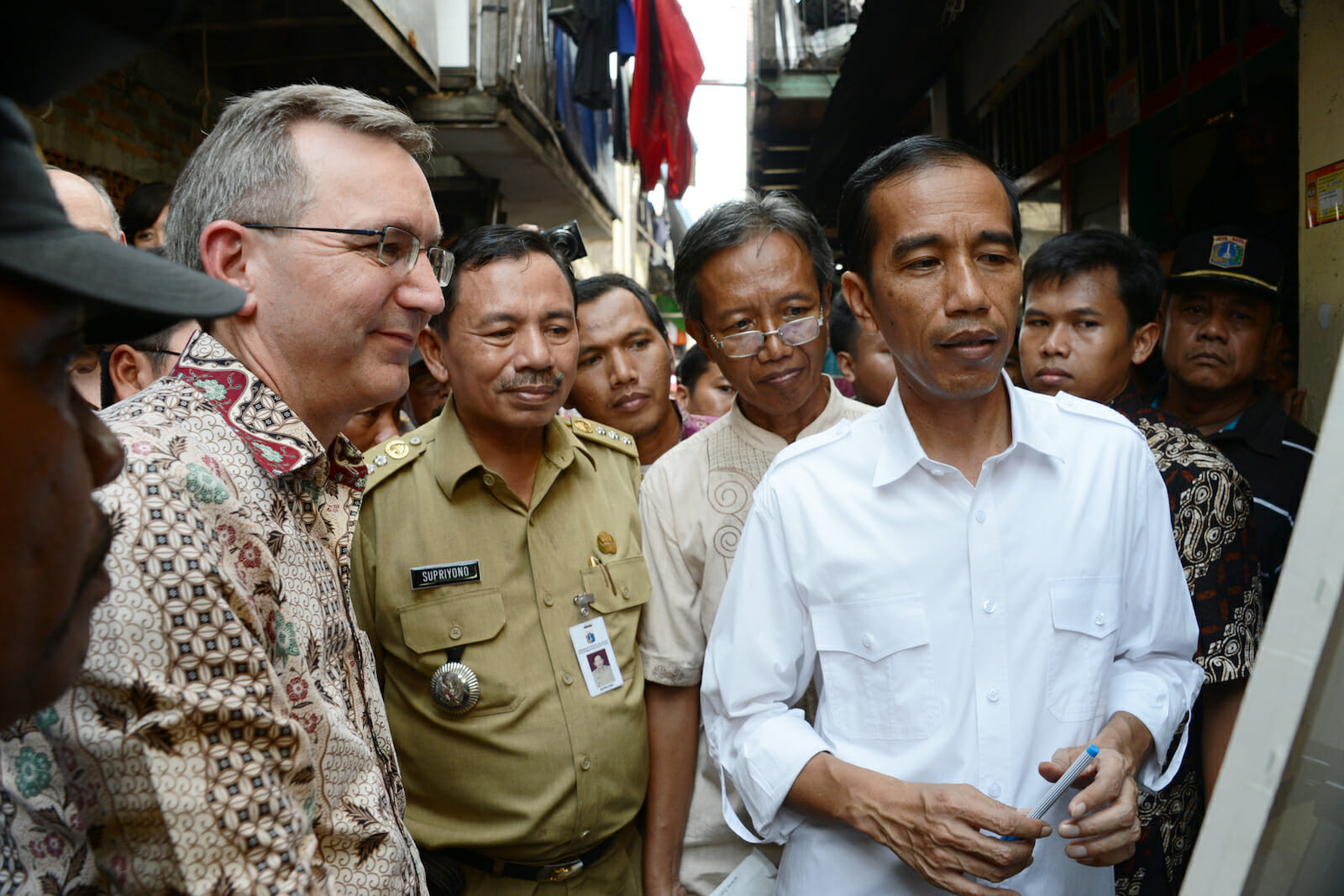
The ‘Bali Nine’: Jokowi’s Diplomatic Offensive Going into an Overdrive
Since the Australian pair Andrew Chan and Myuran Sukumaran were moved to the high-security prison on Nusakambangan Island, it is certain that the duo will face the firing squad for their role in a drug smuggling ring known as “Bali Nine” in Indonesia ten years ago. The duo were convicted in 2005 after being caught attempting to smuggle heroin from Bali to Australia. A last-ditch attempt was made by Australian Foreign Minister, Julie Bishop, to swap three Indonesian prisoners for the duo but was quickly turned down.
In the run-up to the impending execution, there have been calls from various quarters in Australia including Prime Minister Tony Abbott to halt the move, saying he was “revolted” by the prospect. However, Indonesian President Joko Widodo has refused to show mercy and said drug trade destroyed the lives of people in his country. It remains to be seen how this episode will play out in the diplomatic relationship between Canberra and Jakarta that, for the most part, is stable.
This is not the first time that Jokowi has put Indonesia at loggerheads with other countries. In January this year, five foreign drug convicts from Brazil, Malawi, Nigeria, the Netherlands and Vietnam were executed in the same manner for drug trafficking. Relationships between Brazil and Indonesia immediately turned sour with the latter’s President, Dilma Rousseff, statement that she was “outraged and dismayed” by the execution of its citizen. Both Brazil and the Netherlands recalled their ambassadors in response to the killings. In a game of “tit-for-tat,” Indonesia followed suit by recalling its ambassador to Brazil.
Jokowi’s hardline stance also goes beyond the gallows and well into territorial waters after Indonesia blew up five fishing vessels from Thailand for illegal fishing in December last year. The move came as Jokowi is keen to convey the message that “no foreigners should steal from Indonesian waters,” a practice he said was costing $20 billion in losses annually for Indonesia.
His move however shocked many of Indonesia’s neighbours in the region. Malaysia’s Foreign Minister Anifah Aman said he was astounded that Jokowi would sink “foreign vessels caught illegally in Indonesian waters” as both countries have signed a Memorandum of Understanding (MoU) on treatment of illegal fishermen.
The approach by Jokowi has left many pundits and observers baffled as barely seven months into office, the man who is known as charming and down-to-earth is instead heavy handed in his handling of foreign affairs. His image seems contrary to a man once known to have a taste for metal head music and hailed for his progressive thinking.
Even Indonesians are wary of Jokowi’s administration over a string of political scandals and what some call broken campaign promises. An opinion poll by Social and Political Study Centre (Puspol) Indonesia indicates that 100-days into his presidency 74.6 percent of respondents were not satisfied with the administration particularly in combating the country’s endemic corruption.
On the foreign policy front, Jokowi’s nationalistic sentiment appears to have gone into overdrive based on its dealing with disputes in the past few months. It has been clear from the start that the foreign policy direction of this vast archipelago will put Indonesians first and foremost in line with Jokowi’s image as a people-centric leader. In an address on 8 January, the country’s Foreign Minister, Retno Marsudi said the three foreign policy priorities of Indonesia will be maintaining sovereignty, enhancing protection of its citizens and intensifying economic diplomacy. His predecessor, Susilo Bambang Yudhoyono’s foreign policy was often described as internationalist and overly elitist by some.
While the act of sinking foreign ships might be a welcome move in galvanizing Jokowi’s support domestically, the extreme measures taken to implement these priorities have also caused regional neighbours to raise “red flags” over the possibility of a more assertive Indonesia with an appetite for a stronger maritime presence. Despite this, it should be noted that for Indonesia to effectively protect its sovereignty on the waters surrounding the country, a bigger navy will be needed. Indonesian former navy chief, Admiral Marsetio once said the country’s present assets of two submarines and four frigates will not be able to complete this task as it requires at least 12 submarines and 16 frigates to do so.
The threat by Jokowi might have sounded rhetorical but it still sends lingering questions about his domestic-oriented foreign policy. Retno insisted that Indonesia is not turning its back on the world but instead it wants to focus more on developing bilateral relationships that will benefit the people of Indonesia. It also wants to go beyond the Asia-Pacific region by deepening friendships with those beneficial to its growth. It is a move away from Yudhoyono’s policy of “thousand friends, zero enemies” and this might explain the spike of diplomatic clashes in the past few months as Indonesia becomes less conciliatory then it was in the past.
Jokowi’s change of direction from his predecessor also raised fears that Indonesia’s focus on bilateralism instead of multilateralism could be detrimental to the integration agenda of the Association of Southeast Asian Nations (ASEAN). During a meeting with the bloc’s leaders in November, Jokowi reportedly said that the implementation of the ASEAN Economic Community (AEC) by 2015 “must not harm our [Indonesia] national interest.”
Should Jokowi continue on the path of populism on the foreign policy front in order to boost support among local electorates, some analysts warn that it will risk damaging ASEAN solidarity at a critical time when the bloc is pushing ahead for a closer community. Legally correct, the action of public sinking of vessels could add salt to injury since most of the foreign vessels belong to regional neighbours like Thailand and Vietnam. In the spirit of ASEAN, the less confrontational approach of using regional mechanisms would be the preferred way to solve these issues.
The pretext of executing foreign citizens to protect Indonesians from the perils of the drug trade could also cast doubts on the administration’s ability to maintain the delicate balance between advancing bilateral relationships with some of its current and potential partners namely Australia and Brazil while safeguarding its national interests. Another point of concern stemming from the execution of foreigners is that Jokowi is seen backtracking from his campaign pledge to respect the universal value of human rights. Some have said that the Indonesian government is “hypocritical” as it actively seeks to save its nationals, mostly migrants, from execution in countries like Saudi Arabia and Malaysia but has refused to show clemency for foreigners on its soil. Jokowi defended his decision saying those executions are criminal matters, not diplomatic, and urged respect for his country’s rule of law.
There is still hope that Jokowi might relent as time goes by in light of the changes in the international arena. In the area of regionalism, Indonesia’s Ambassador to ASEAN, Rahmat Pramono, has assured foreign leaders that his country’s “preoccupation with domestic issues would see it scaling down its involvement in regional and global matters” is a welcoming signal at this moment of uncertainty. It has just been seven months since Jokowi took office and only time will tell if the early signs of a hardliner foreign policy will endure in the coming years.

